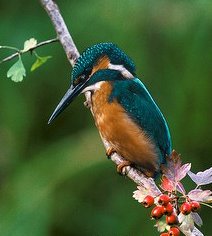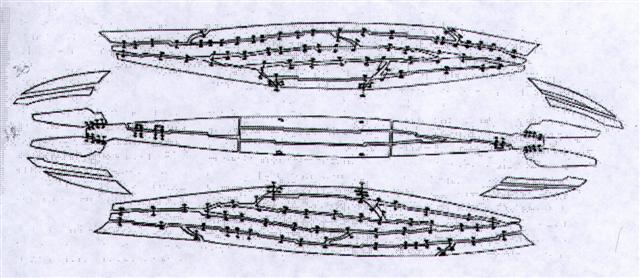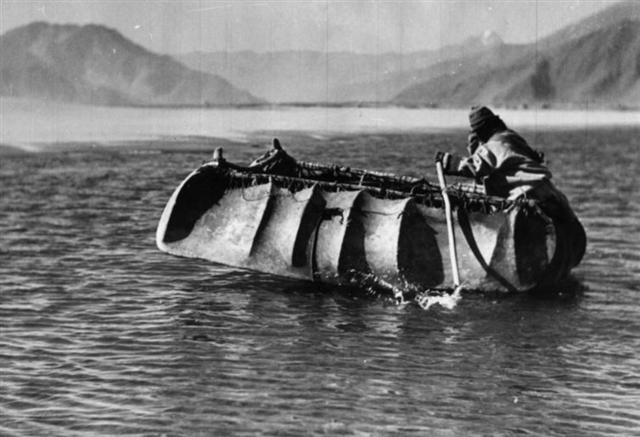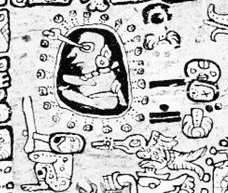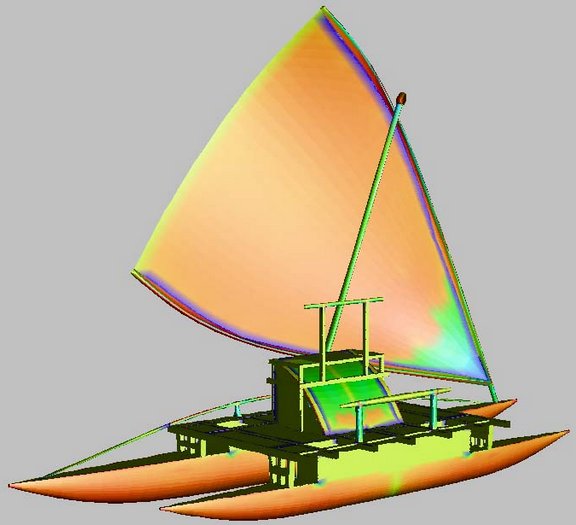Ba5.1 Could the Easter Island month named Toki have begun at heliacal Alcyone, at the Foundation Stone of the ancient Babylonians? ... another Alcyone, daughter of Pleione, 'Queen of Sailing', by the oak-hero Atlas, was the mystical leader of the seven Pleiads. The heliacal rising of the Pleiads in May marked the beginning of the navigational year; their setting marked its end when (as Pliny notices in a passage about the halcyon) a remarkably cold North wind blows ...
... Vainamoinen set about building a boat, but when it came to the prow and the stern, he found he needed three words in his rune that he did not know, however he sought for them. In vain he looked on the heads of the swallows, on the necks of the swans, on the backs of the geese, under the tongues of the reindeer. He found a number of words, but not those he needed. Then he thought of seeking them in the realm of Death, Tuonela, but in vain. He escaped back to the world of the living only thanks to his potent magic. He was still missing his three runes. He was then told by a shepherd to search in the mouth of Antero Vipunen, the giant ogre. The road, he was told, went over swords and sharpened axes. Ilmarinen made shoes, shirt and gloves of iron for him, but warned him that he would find the great Vipunen dead. Nevertheless, the hero went. The giant lay underground, and trees grew over his head. Vainamoinen found his way to the giant's mouth, and planted his iron staff in it. The giant awoke and suddenly opened his huge mouth. Vainamoinen slipped into it and was swallowed. As soon as he reached the enormous stomach, he thought of getting out. He built himself a raft and floated on it up and down inside the giant. The giant felt tickled and told him in many and no uncertain words where he might go, but he did not yield any runes. Then Vainamoinen built a smithy and began to hammer his iron on an anvil, torturing the entrails of Vipunen, who howled out magic songs to curse him away. But Vainamoinen said, thank you, he was very comfortable and would not go unless he got the secret words. Then Vipunen at last unlocked the treasure of his powerful runes. Many days and nights he sang, and the sun and the moon and the waves of the sea and the waterfalls stood still to hear him. Vainamoinen treasured them all and finally agreed to come out. Vipunen opened his great jaws, and the hero issued forth to go and build his boat at last ...
3 words could not be found when the Boat (Zaurak) was about to be constructed. Probably some echo of this problem explains the crooked canoe in the myth about Tae-tagaloa (Not Tagaroa → Tane): ... They go inland at the land. The child nursed and tended grows up, is able to go and play. Each day he now goes off a bit further away, moving some distance away from the house, and then returns to their house. So it goes on and the child is fully grown and goes to play far away from the place where they live. He goes over to where some work is being done by a father and son. Likāvaka is the name of the father - a canoe-builder, while his son is Kiukava. Taetagaloa goes right over there and steps forward to the stern of the canoe saying - his words are these: 'The canoe is crooked.' (kalo ki ama). Instantly Likāvaka is enraged at the words of the child. Likāvaka says: 'Who the hell are you to come and tell me that the canoe is crooked?' Taetagaloa replies: 'Come and stand over here and see that the canoe is crooked.' Likāvaka goes over and stands right at the place Taetagaloa told him to at the stern of the canoe. Looking forward, Taetagaloa is right, the canoe is crooked. He slices through all the lashings of the canoe to straighten the timbers. He realigns the timbers. First he must again position the supports, then place the timbers correctly in them, but Kuikava the son of Likāvaka goes over and stands upon one support. His father Likāvaka rushes right over and strikes his son Kuikava with his adze. Thus Kuikava dies. Taetagaloa goes over at once and brings the son of Likāvaka, Kuikava, back to life. Then he again aligns the supports correctly and helps Likāvaka in building the canoe. Working working it is finished ...
The daughter of Atlas and Pleione was Alcyone, the Queen of Sailing, and here the Boat (te vaka) should be ready and fit for sailing (tere). Vaka. Canoe, small boat; vaka ama, outrigger canoe. Vaka-ivi, graves under ahu which hold skeletons (lit. 'bone canoe'). Vaka-ure, to lay foundation stones in the outline of a canoe (e.g. for hare paenga); nowadays used in the more general sense, without reference to a special shape of outline. Vanaga. Canoe, boat, bateau, shallop, barge. Vakapoepoe (vaka - poepoe) boat. P Pau.: vaka, canoe. Mgv.: vaka, canoe, raft. Mq.: vaka, canoe. Ta.: vaa, canoe, boat. Vakavaka, narrow. Mq.: vakavaka, vaávaá, small, fine, thin. Churchill. South of the equator on Easter Island, where the seasons were 'upside down' and not the Sun but the Moon determined time-space, there ought to be a place for this Boat to make Land-fall instead of leaving (going up). Iri. 1. To go up; to go in a boat on the sea (the surface of which gives the impression of going up from the coast): he-eke te tagata ki ruga ki te vaka, he-iri ki te Hakakaiga, the men boarded the boat and went up to Hakakainga. 2. Ka-iri ki puku toiri ka toiri. Obscure expression of an ancient curse. Vanaga. Iri-are, a seaweed. Vanaga. Japanese: iri-guchi (door of entrance).
Manuscript E tells about when the Explorers were reaching Easter Island, when they were making ready for landfall, viz. in the first day of Te Maro (the Dry month): ... On the twenty-fifth day of the first month (Vaitu Nui), Ira and Makoi set sail; on the first day of June ('Maro'), the bow of Ira's canoe appeared on the distant horizon, came closer and closer on its course, and sailed along, and finally (one) could see the (new home) land ... 152 (June 1) - 16 = 136 (May 16). Which ought to mean that at the time when the Bow of the canoe became visible on Easter Island the cardinal star Alcyone (together with her parents' stars Atlas and Pleione) would just have returned to visibility after their close encounter with the Sun. Notice how the Eye of the astronomer stretching out for stars in the night can be perceived as a contrast to the earthlocked figure below:
And insted of 3 words missing there were 3 islets too many - not belonging to Hau Maka. ... These are the handsome sons of Te Taanga, who are standing in the water, for this is the name that the dream soul of Hau Maka gave them. Unforgotten (? kai viri kai viri) are they, these three ... [E:17] At Ba5-5 (4h) Metoro said ki te viriga, which might have referred to the center of these 'not forgotten' days. Viri.1. To wind, to coil, to roll up; he viri i te hau, to wind, coil a string (to fasten something). 2. To fall from a height, rolling over, to hurl down, to fling down. Viriviri, round, spherical (said of small objects). Viviri te henua, to feel dizzy (also: mimiro te henua). Vanaga. To turn in a circle, to clew up, to groom, to twist, to dive from a height, to roll (kaviri). Hakaviri, crank, to groom, to turn a wheel, to revolve, to screw, to beat down; kahu hakaviri, shroud. Viriga, rolling, danger. Viriviri, ball, round, oval, bridge, roll, summit, shroud, to twist, to wheel round, to wallow. Hakaviriviri, to roll, to round; rima hakaviriviri, stroke of the flat, fisticuff. P Pau.: viriviri, to brail, to clew up; koviriviri, twisting. Mgv.: viri, to roll, to turn, to twist; viviri, to fall to the ground again and again in a fight. Mq.: vii, to slide, to roll, to fall and roll. Ta.: viri, to roll up, to clew up. Viritopa, danger. Mgv.: Viripogi, eyes heavy with sleep. Mq.: viipoki, swooning, vertigo. Churchill. Viti: vili, to pick up fallen fruit or leaves ... In Viti virimbai has the meaning of putting up a fence (mbai fence); viri does not appear independently in this use, but it is undoubtedly homogenetic with Samoan vili, which has a basic meaning of going around; virikoro then signifies the ring-fence-that-goes-about, sc. the moon. In the Maori, aokoro is the cloud-fence ... Churchill 2.
Should we count 366 of my right ascension days as a pair of 'years', ... In north Asia the common mode of reckoning is in half-year, which are not to be regarded as such but form each one separately the highest unit of time: our informants term them 'winter year' and 'summer year'. Among the Tunguses the former comprises 6½ months, the latter 5, but the year is said to have 13 months; in Kamchatka each contains six months, the winter year beginning in November, the summer year in May; the Gilyaks on the other hand give five months to summer and seven to winter. The Yeneseisk Ostiaks reckon and name only the seven winter months, and not the summer months. This mode of reckoning seems to be a peculiarity of the far north: the Icelanders reckoned in misseri, half-years, not in whole years, and the rune-staves divide the year into a summer and a winter half, beginning on April 14 and October 14 respectively. But in Germany too, when it was desired to denote the whole year, the combined phrase 'winter and summer' was employed, or else equivalent concrete expressions such as 'in bareness and in leaf', 'in straw and in grass' ... there would be 3 extra days (compared to the Egyptian model with 360 days counted in a whole year) for each such 183 day long 'year'. And then, considering how a circle always can be measured as a pair of halves measuring 180°, there would be 3° missing compared to 366 / 2. ... A circle drawn on the flat surface of the earth measured twice 180° - except by the ancient Chinese who instead used the measure 365¼° ... On the other hand, when the Sun King (Hotu A Matua) launched his double-canoe in order to sail to Easter Island there were 6 'Dormouse' (moega) nights added for loading his ship with all essentials: ... And then the date Hora Nui 2 (presumably "September 2) should be recalled, because here Manuscript E has placed an important event: ... Hotu's canoe sailed from Maori to Te Pito O Te Kainga. It sailed on the second day of September (hora nui) ... [E:74] → *74 (Haedus I) ... For six days (po ono), mats (moenga) were taken on board the canoe (i.e., the loading of the canoe took six nights) ... 366 - 360 = 6.
|
||||||||||||||||||||||||||||||||||||||||||||||||||||||||||||||||||||||
